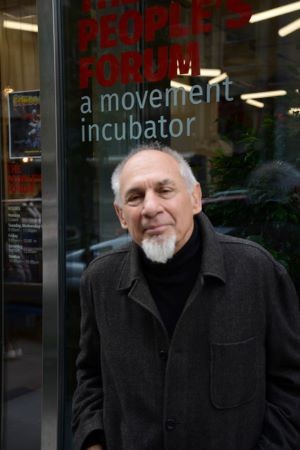Date & time
3 p.m. – 5 p.m.
Michael Pelias, Long Island University Brooklyn and Institute for the Radical Imagination
This event is free. All are welcome.
J.W. McConnell Building
1400 De Maisonneuve Blvd. W.
Room 362
Yes - See details
 Michael Pelias
Michael Pelias
Description: In the shadow of Marxian dialectics, Nietzsche, and more specifically, Nietzsche studies, have traversed the attempt to merge the thinker of Labour ontology with the thinker of eternal recurrence of the same, the thinker of class and class struggle with the Nietzschean problematic of cultural strife and what today can be considered cultural warfare.
I will attempt to show similarities and differences in these two thinkers, while emphasizing their historical rupture with metaphysics.
Both can be considered proto-deconstructionists, unbuilding metaphysics with immanence, and in Marx’s sense of immanent critique. Despite similar critiques of Duhring styled socialism, bourgeois complacency, normativity, and the hatred of inertia, there are major differences regarding the Paris Commune of 1871, socialism in general, and notions of progress and history.
I will address these issues in a contemporary relevant fashion by examining attempted syntheses of these two master thinkers, how they share a hermeneutics of suspicion, yet seem to suggest radically different paths of thinking and praxis.
Through a genealogy of moments in the Marxist tradition--from Lukacs to Marcuse and the rather problematic synthesis attempted in the Anti-Oedipus of Deleuze and Guattari--I will first situate the shared interest in Left scholarship of this encounter.
Secondly, a problematic will be set up through the appropriation of the conceptual frameworks of new understandings of Labour and of Power.
And thirdly, in the contemporary situation, how can History and Time be understood through eternal recurrence of the same, or in Marx’s play on Hegel that events first appear as tragedy, the second time, as farce? Again, the use of the Parodic as common to both, but asking the question: To what end(s)? Would this involve a new vision of philosophy of the future, one as a conservative aristocracy of souls (a conservative revolution)? Or a revolution that promises equality and new forms of emancipation (socialist transition / production of new ideas of communism)?
Michael Pelias has taught ancient and modern philosophy at Long Island University Brooklyn for over 30 years and has recently taught courses in sociology and political theory at Brooklyn College. He is the editor-in-chief of the journal Situations: Project of the Radical Imagination and director and cofounder of the alternative educational project Institute for the Radical Imagination. His latest project is articulating a new practice in philosophy, called Convergence Philosophy, an experiment in permanence and change.
This event is presented by the Students of Philosophy Association (SoPhiA).
© Concordia University